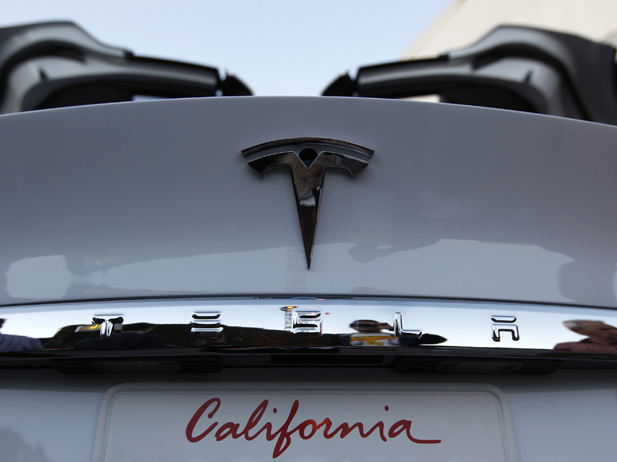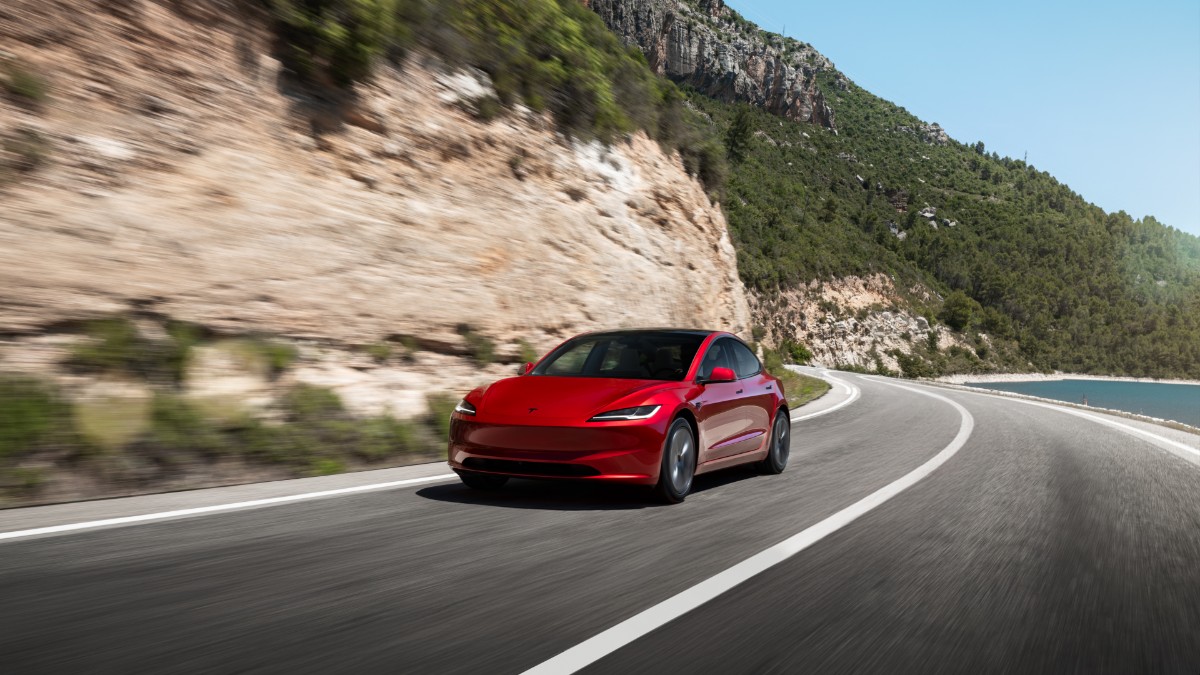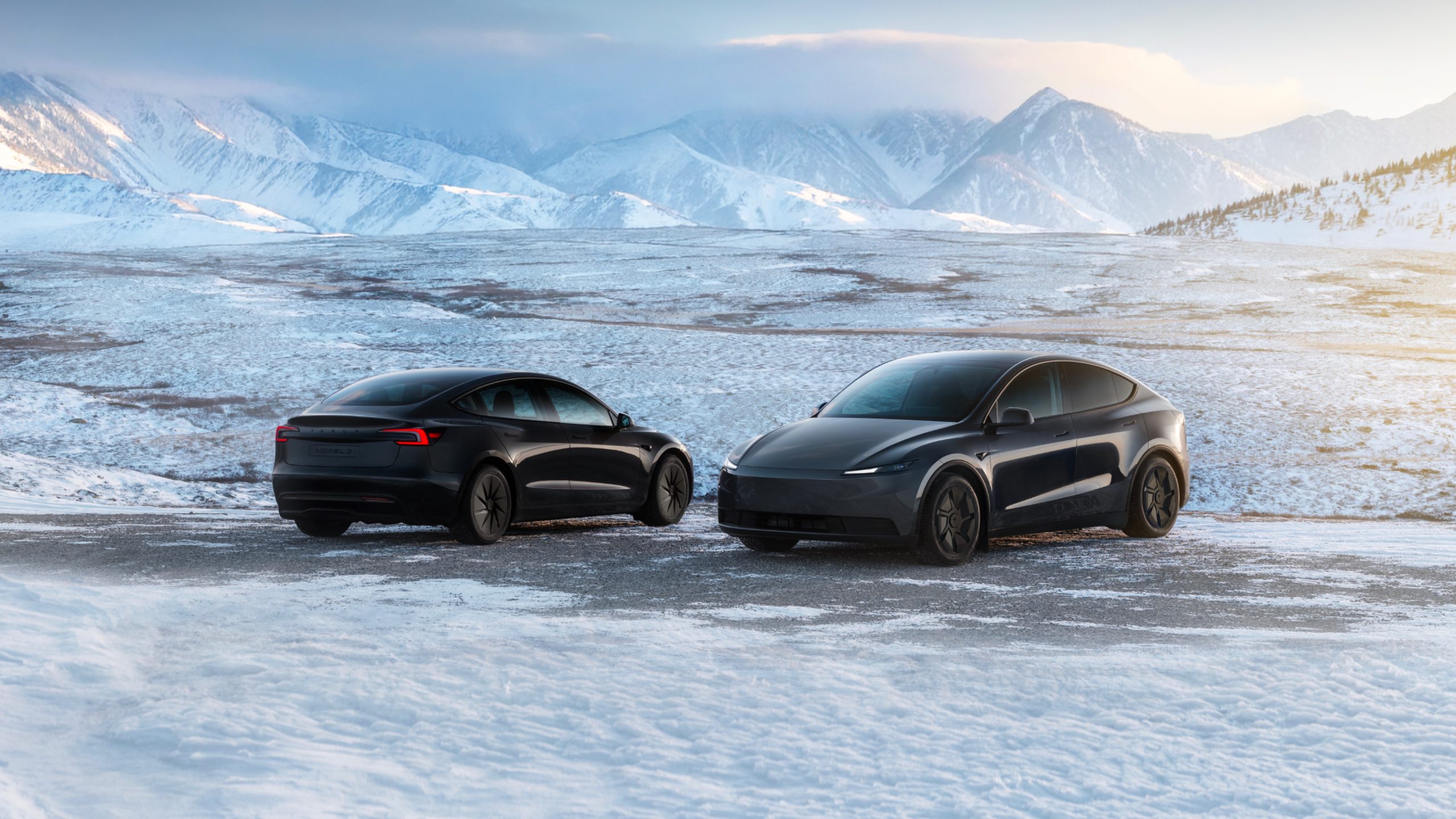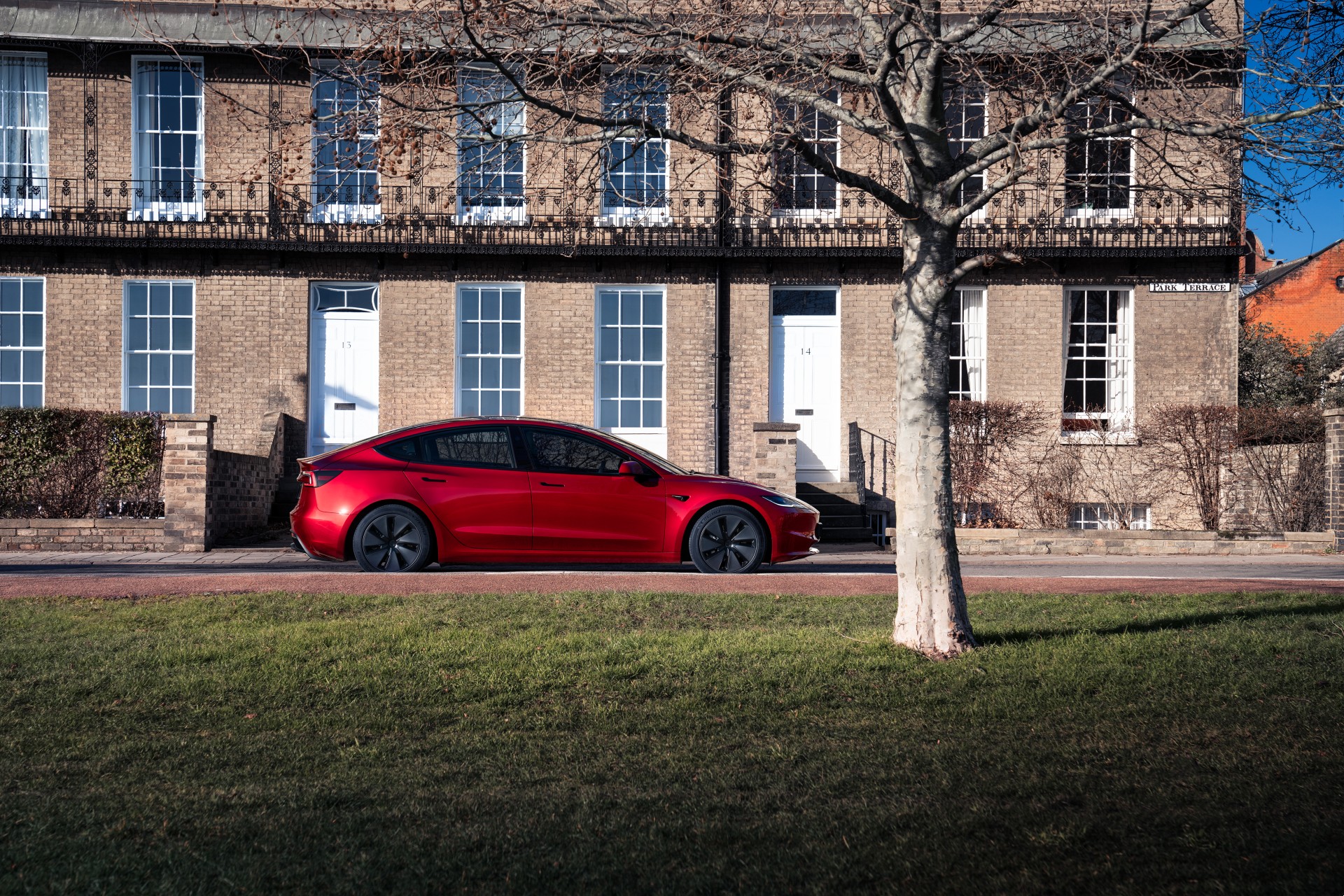

Tesla Model 3
Tesla to benefit as California takes stand against GM, Toyota, Fiat Chrysler
The State of California has announced they will halt the purchase of gas-powered sedans, and will also stop buying vehicles from any manufacturers who have not agreed to abide by the state’s rules regarding vehicle emissions.
In an emailed statement to CalMatters.org, California Governor Gavin Newsom said that “The state is finally making the smart move away from internal combustion engine sedans. Carmakers that have chosen to be on the wrong side of history will be on the losing end of California’s buying power.”
California purchased 2,672 vehicles for its Government fleet in 2018 according to the state’s Department of General Services.
The decision to exclusively purchase electric sedans from manufacturers who have come on board with California’s clean car rules will affect Fiat Chrysler, Toyota, and more than anyone, General Motors’ Chevrolet brand, who California bought more than $27 million worth of vehicles from in 2018. California has chosen to put their money where their mouth is by siding with carmakers who have intentions to contribute to creating a sustainable future.
This is an opportunity for electric car makers such as Tesla to work with California to secure a future that would include only vehicles produced by companies whose goal is to work toward environmental-consciousness. California is already home to many electric vehicles as a report from The Los Angeles Times published in September showed electric vehicle sales spiked 63.7% in the first half of the year, largely due to the nearly 33,000 Model 3s being sold in the state within this time frame.
While we do not know what electric vehicles California will utilize for its fleet, we do understand that the electric car manufacturer based in Silicon Valley has been and will help the state work toward a sustainable future, starting with its vehicles. If California decides to ultimately halt the purchase of petrol-powered trucks, sport utility vehicles, and semi-trucks as well, Tesla could provide its home state with some of its upcoming releases, like the Model Y, the soon-to-be-unveiled Cybertruck, and its Semi, a tractor-trailer that has already been purchased by Pepsi Co. for its Frito Lay plant in Modesto, CA.
The environmental impact of its vehicle fleet is extremely important to the state of California, and they are currently fighting with the Environmental Protection Agency (EPA) and the National Highway Transportation Safety Administration (NHTSA) for rights to control its own rules regarding greenhouse gases.
California sued the EPA on November 15 and the NHTSA in September after the two agencies revoked the state’s rights to come up with and follow its own guidelines in terms of vehicle emissions. Supervising Attorney for UCLA’s Frank G. Wells Environmental Law Clinic Julia Stein said “It certainly sends a strong message to the automakers that have come out on the other side of California in this litigation. It’s taking steps to encourage automakers to be on what it views as the right side of that dispute.”
California is making significant strides to create consequences for manufacturers who are choosing not to improve their vehicles by trying to reduce carbon emissions. The companies California have decided to cut ties with are all looking to side with the Trump Administration, which has made an attempt to eliminate the standards set by the Obama White House that were intended to cut the number of greenhouse gases emitted into the Earth’s atmosphere. Certainly, Tesla’s environmental goals match up with California’s intentions to become a more sustainable state. The electric car maker can contribute to a sustainable future if the state decides to invest in the company.

News
Tesla is making two big upgrades to the Model 3, coding shows
According to coding found in the European and Chinese configurators, Tesla is planning to make two big upgrades: Black Headliner offerings and a new 16-inch QHD display, similar to that on the Model Y Performance.

Tesla is making two big upgrades to the Model 3, one of which is widely requested by owners and fans, and another that it has already started to make on some trim levels of other models within the lineup.
The changes appear to be taking effect in the European and Chinese markets, but these are expected to come to the United States based on what Tesla has done with the Model Y.
According to coding found in the European and Chinese configurators, Tesla is planning to make two big upgrades: Black Headliner offerings and a new 16-inch QHD display, similar to that on the Model Y Performance.
These changes in the coding were spotted by X user BERKANT, who shared the findings on the social media platform this morning:
🚨 Model 3 changes spotted in Tesla backend
• New interior code: IN3PB (Interior 3 Premium Black)
• Linked to Alcantara-style black headliner
• Mapped to 2026 Model 3 Performance and Premium VINs• EPC now shows: “Display_16_QHD”
• Multiple 2026 builds marked with… pic.twitter.com/OkDM5EdbTu— BERKANT (@Tesla_NL_TR) February 23, 2026
It appears these new upgrades will roll out with the Model 3 Performance and Tesla’s Premium trim levels of the all-electric sedan.
The changes are welcome. Tesla fans have been requesting that its Model 3 and Model Y offerings receive a black headliner, as even with the black interior options, the headliner is grey.
Tesla recently upgraded Model Y vehicles to this black headliner option, even in the United States, so it seems as if the Model 3 will get the same treatment as it appears to be getting in the Eastern hemisphere.
Tesla has been basically accentuating the Model 3 and Model Y with small upgrades that owners have been wanting, and it has been a focal point of the company’s future plans as it phases out other vehicles like the Model S and Model X.
Additionally, Tesla offered an excellent 0.99% APR last week on the Model 3, hoping to push more units out the door to support a strong Q1 delivery figure at the beginning of April.
News
Tesla dominates JD Power EV Satisfaction ranking, grabbing top two spots
The Model 3 was the highest ranking EV considered, with a score of 804, followed by the Model Y at 797, the BMW i4 at 795, and the BMW iX at 794.

Tesla dominated JD Power’s EV Owner Satisfaction ranking for 2026, grabbing the top two spots in the survey with the Model 3 and Model Y.
The two Tesla models grabbed the first and second spots, respectively, with scores of 804 and 797 out of 1,000 possible points.
Brent Gruber, Executive Director of JD Power’s EV practice, said:
“EV market share has declined sharply following the discontinuation of the federal tax credit program in September 2025, but that dip belies steadily growing customer satisfaction among owners of new EVs. Improvements in battery technology, charging infrastructure, and overall vehicle performance have driven customer satisfaction to its highest level ever. What’s more, the vast majority of current EV owners say they will consider purchasing another EV for their next vehicle, regardless of whether they benefited from the now-expired federal tax credit.”
JD Power’s study showed three key findings: Public charging satisfaction was higher than ever, premium BEVs saw more pronounced quality improvements, and BEVs held their satisfaction ratings compared to plug-in hybrid electric vehicles (PHEVs).
Tesla Grabs Top 2 Spots
Despite what some publications might try to make you believe, Tesla is still the cream of the crop when it comes to EV ownership, and real-world owners surveyed by JD Power will prove that to you.
The Model 3 was the highest ranking EV considered, with a score of 804, followed by the Model Y at 797, the BMW i4 at 795, and the BMW iX at 794. The segment average for “Premium Battery Electric Vehicles” was 786. The Cadillac OPTIQ (762), Rivian R1S (758), Lucid Air (740), Rivian R1T (739), and Audi Q6 e-Tron (690) all finished below that threshold.
Meanwhile, a separate category for “Mass Market Battery Electric Vehicles” had the Ford Mustang Mach-E as the EV with the highest rating at 760. The segment average for this class was 727.
🚨 Tesla topped J.D. Power’s new EV Owner Satisfaction Study for 2026, with the Model 3 (804) and Model Y (797) being the top-rated vehicles, beating out the BMW i4 (795) and iX (794)
Additionally, Tesla Superchargers helped public charging satisfaction rise to new highs:
“The… pic.twitter.com/4WIxoDxHig
— TESLARATI (@Teslarati) February 19, 2026
Tesla Supercharging Improves Public Charging Satisfaction
JD Power said the availability of public charging is “by far the most improved index factor,” and that the consistent growth of publicly available charging has helped push many consumer sentiments in a positive direction.
Most of this is due to the Tesla Supercharger Network and its expansion. However, Tesla owners are also becoming more satisfied with the infrastructure after expanding access to other EV brands, the study said.
News
Tesla Model 3 wins Edmunds’ Best EV of 2026 award
The publication rated the Model 3 at an 8.1 out of 10, and with its most recent upgrades and changes, Edmunds says, “This is the best Model 3 yet.”

The Tesla Model 3 has won Edmunds‘ Top Rated Electric Car of 2026 award, beating out several other highly-rated and exceptional EV offerings from various manufacturers.
This is the second consecutive year the Model 3 beat out other cars like the Model Y, Audi A6 Sportback E-tron, and the BMW i5.
The car, which is Tesla’s second-best-selling vehicle behind the popular Model Y crossover, has been in the company’s lineup for nearly a decade. It offers essentially everything consumers could want from an EV, including range, a quality interior, performance, and Tesla’s Full Self-Driving suite, which is one of the best in the world.
The Tesla Model 3 has won Edmunds Top EV of 2026:
“The Tesla Model 3 might be the best value electric car you can buy, combining an Edmunds Rating of 8.1 out of 10, a starting price of $43,880, and an Edmunds-tested range of 338 miles. This is the best Model 3 yet. It is… pic.twitter.com/ARFh24nnDX
— TESLARATI (@Teslarati) February 18, 2026
The publication rated the Model 3 at an 8.1 out of 10, and with its most recent upgrades and changes, Edmunds says, “This is the best Model 3 yet.”
In its Top Rated EVs piece on its website, it said about the Model 3:
“The Tesla Model 3 might be the best value electric car you can buy, combining an Edmunds Rating of 8.1 out of 10, a starting price of $43,880, and an Edmunds-tested range of 338 miles. This is the best Model 3 yet. It is impressively well-rounded thanks to improved build quality, ride comfort, and a compelling combination of efficiency, performance, and value.”
Additionally, Jonathan Elfalan, Edmunds’ Director of Vehicle Testing, said:
“The Model 3 offers just about the perfect combination of everything — speed, range, comfort, space, tech, accessibility, and convenience. It’s a no-brainer if you want a sensible EV.”
The Model 3 is the perfect balance of performance and practicality. With the numerous advantages that an EV offers, the Model 3 also comes in at an affordable $36,990 for its Rear-Wheel Drive trim level.








